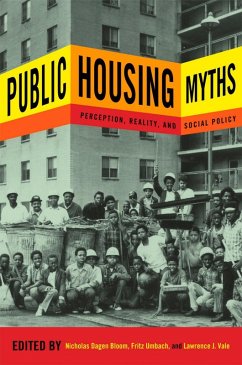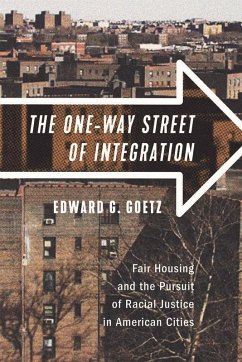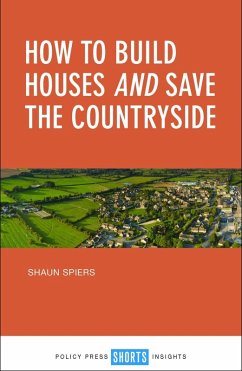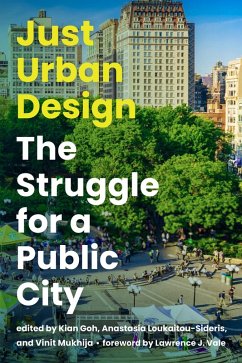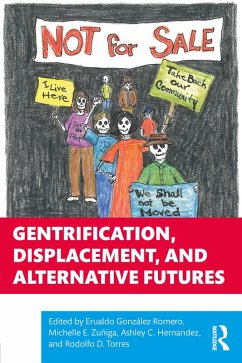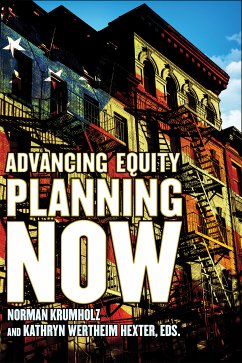
Advancing Equity Planning Now (eBook, ePUB)

PAYBACK Punkte
1 °P sammeln!
What can planners do to restore equity to their craft? Drawing upon the perspectives of a diverse group of planning experts, Advancing Equity Planning Now places the concepts of fairness and equal access squarely in the center of planning research and practice. Editors Norman Krumholz and Kathryn Wertheim Hexter provide essential resources for city leaders and planners, as well as for students and others, interested in shaping the built environment for a more just world.Advancing Equity Planning Now remind us that equity has always been an integral consideration in the planning profession. The...
What can planners do to restore equity to their craft? Drawing upon the perspectives of a diverse group of planning experts, Advancing Equity Planning Now places the concepts of fairness and equal access squarely in the center of planning research and practice. Editors Norman Krumholz and Kathryn Wertheim Hexter provide essential resources for city leaders and planners, as well as for students and others, interested in shaping the built environment for a more just world.
Advancing Equity Planning Now remind us that equity has always been an integral consideration in the planning profession. The historic roots of that ethical commitment go back more than a century. Yet a trend of growing inequality in America, as well as other recent socio-economic changes that divide the wealthiest from the middle and working classes, challenge the notion that a rising economic tide lifts all boats. When planning becomes mere place-making for elites, urban and regional planners need to return to the fundamentals of their profession. Although they have not always done so, planners are well-positioned to advocate for greater equity in public policies that address the multiple objectives of urban planning including housing, transportation, economic development, and the removal of noxious land uses in neighborhoods.
Thanks to generous funding from Cleveland State University, the ebook editions of this book are available as Open Access volumes from Cornell Open (cornellpress.cornell.edu/cornell-open) and other repositories.
Advancing Equity Planning Now remind us that equity has always been an integral consideration in the planning profession. The historic roots of that ethical commitment go back more than a century. Yet a trend of growing inequality in America, as well as other recent socio-economic changes that divide the wealthiest from the middle and working classes, challenge the notion that a rising economic tide lifts all boats. When planning becomes mere place-making for elites, urban and regional planners need to return to the fundamentals of their profession. Although they have not always done so, planners are well-positioned to advocate for greater equity in public policies that address the multiple objectives of urban planning including housing, transportation, economic development, and the removal of noxious land uses in neighborhoods.
Thanks to generous funding from Cleveland State University, the ebook editions of this book are available as Open Access volumes from Cornell Open (cornellpress.cornell.edu/cornell-open) and other repositories.
Dieser Download kann aus rechtlichen Gründen nur mit Rechnungsadresse in A, D ausgeliefert werden.






